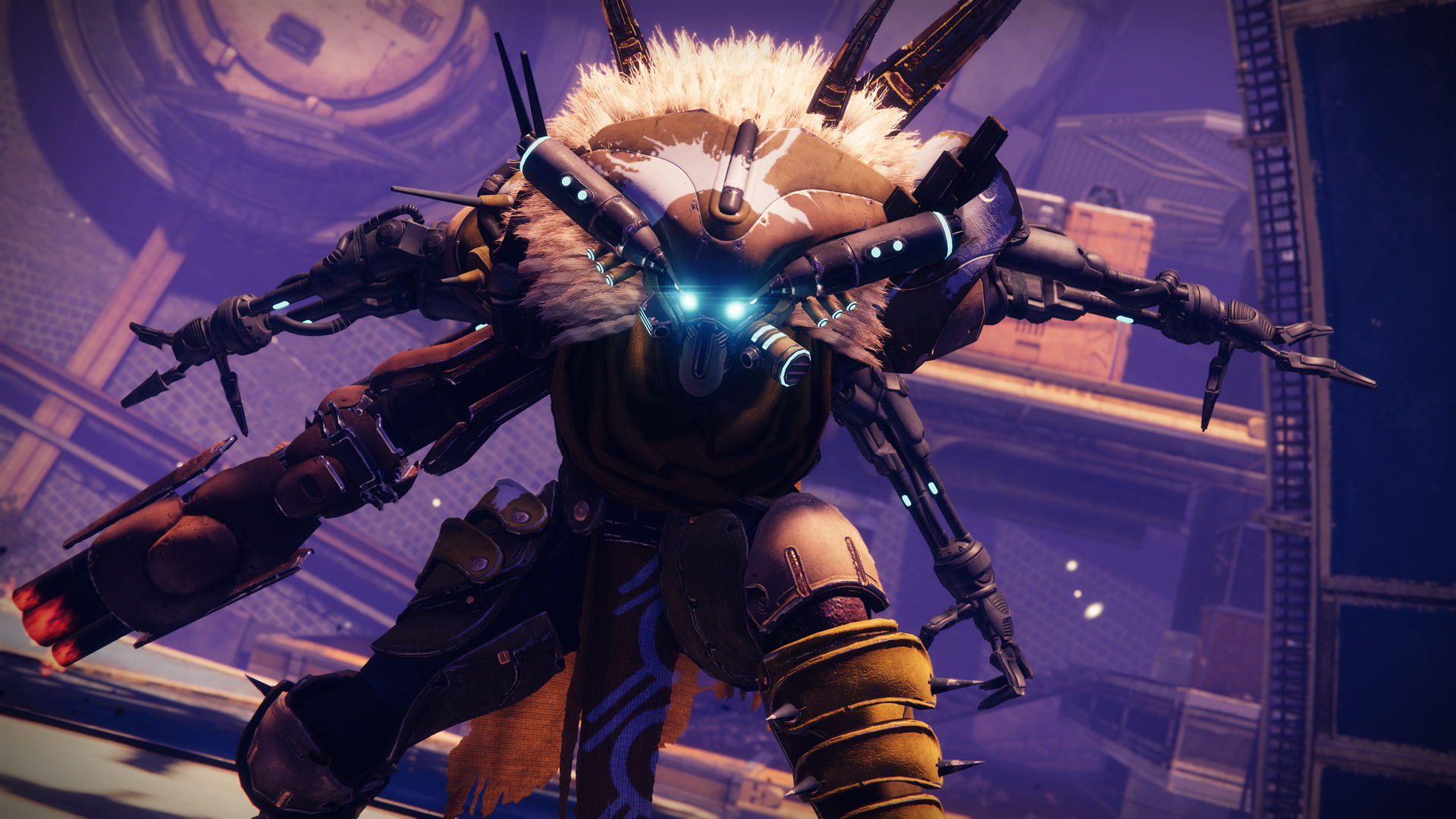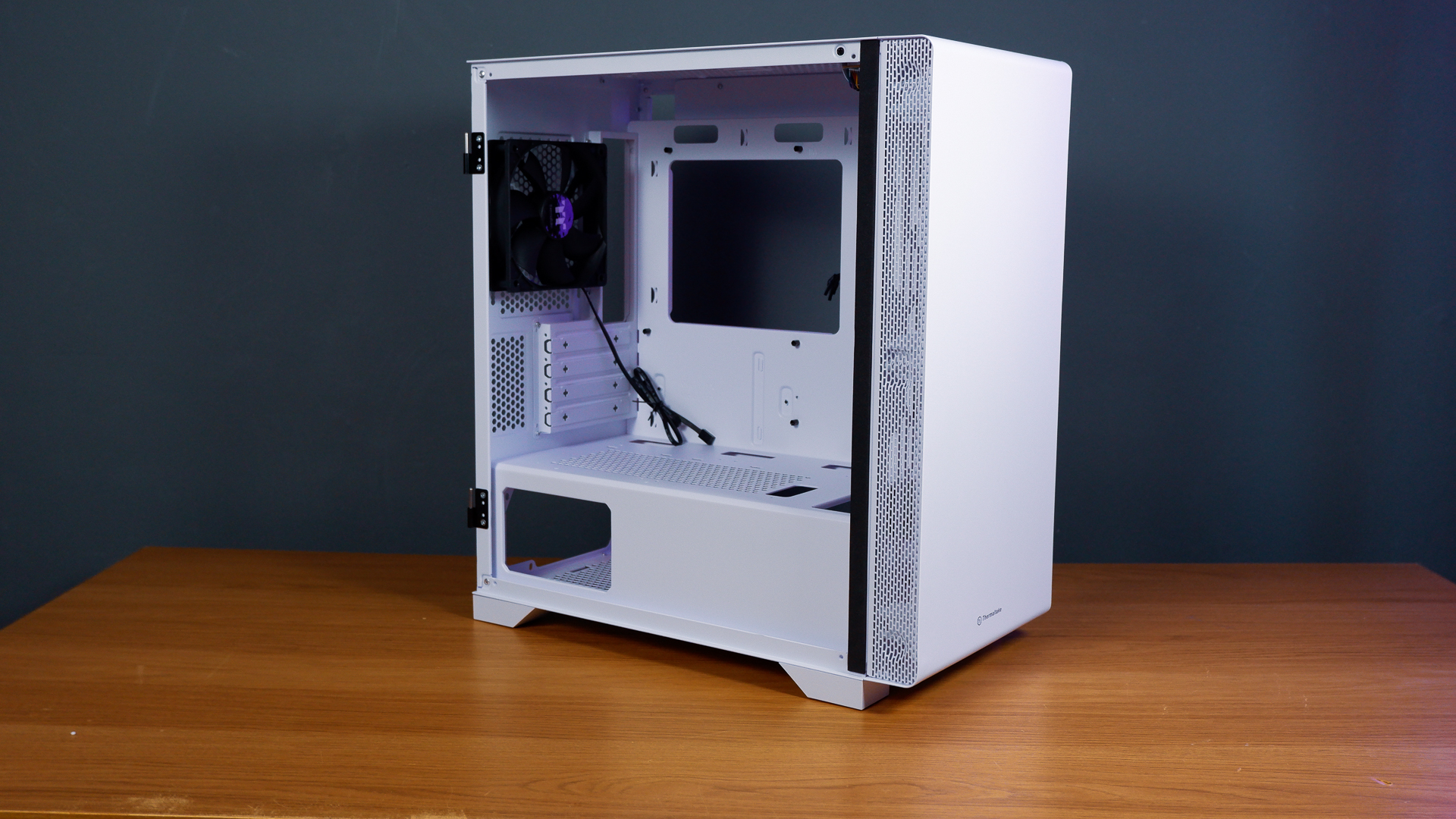Payback, a Destiny spinoff that was not, in fact, Destiny 3, was cancelled two months before the latest mass layoffs at Bungie
Most of Payback's development team has shifted to the upcoming Marathon reboot.

Two months before this week's mass layoff of more than 200 staff at Bungie, "Payback," the codename for a third-person perspective spinoff project set in the Destiny universe, was cancelled in order to prioritize development of the upcoming Marathon extraction shooter, according to a report from Bloomberg's Jason Schreier.
According to the blog post from Bungie CEO Pete Parsons that announced the layoffs—which was apparently how some staff got the news—the studio's second major downsizing in less than a year is the result of an "overly ambitious" management decision to initiate "several incubation projects," which left Bungie's development staff spread "too thin, too quickly." One of those projects was Payback, a Destiny spinoff that Schreier's sources said would "shake up the formula in major ways."
Described as "a significant departure" that would borrow elements from Warframe and Genshin Impact, Payback traded Destiny's first-person perspective for third-person combat and exploration, and would "allow players to use the franchise's characters to explore a large world." Two months ago, Bungie cancelled Payback to concentrate development resources on Marathon, relocating most of the Payback team to assist with the extraction shooter reboot's 2025 release.
Schreier notes that rumors circulated online in recent months, leading fans to believe that Payback was being developed as a full sequel to Destiny 2, were inaccurate "according to the people familiar." Payback, he writes, was considered internally as a spinoff project. Schreier also reports that Bungie hadn't initiated development on a Destiny 3 project, with the studio instead looking to maintain ongoing support for Destiny 2, particularly given the financial pressures it has faced ever since the critical failure of last year's Lightfall expansion, which Parson's himself described as a "quality miss" in his post.
On the topic of annual expansions, Bungie is reportedly abandoning its major annual Destiny 2 drops, which company leadership said in a recent meeting had seen declining year-over-year sales. Instead, Destiny 2 will shift to a model focused on the release of "smaller-scale content drops" as free updates, with the success of last year's Into The Light update cited as the model to replicate. (Although even that wasn't without controversy.)
Schreier also reports that long-serving senior Destiny creatives Luke Smith and Mark Noseworthy left the studio this week alongside other established Bungie leadership. It should be noted though that neither had been actively in charge of Destiny 2 for years now, which is currently led by veteran Tyson Green, who took over from Joe Blackburn in january.
Perhaps what's most astonishing about this whole thing, other than the fact that Bungie had multiple incubation projects running at the same time that its only money-making game was crying out for more support, is that The Final Shape was a resounding success with players and critics. Hell, it may even sneak into the Game of the Year discussion. But despite that return to form, player concurrent numbers are now substantially lower than at the equivalent time after Lightfall launched, confirming suspicions that many fans have used the end of the main story as a good time to jump ship.
Keep up to date with the most important stories and the best deals, as picked by the PC Gamer team.
With the studio now in unprecedented tumult and player sentiment once again at rock bottom, Destiny's long-term viability looks dangerously uncertain. Players hoping for a crumb of comfort may cling to the fact that Bungie has often done its best creative work whilst its back was against the wall, as was the case with Into The Light and The Final Shape. That will of course come as no comfort to all those laid off this week, who gave everything to wrap the 10-year saga up on a high note and were rewarded with livelihoods in upheaval.
Pete Parsons, meanwhile, may have been rewarding himself with $2.4 million in vintage cars.
Lincoln has been writing about games for 11 years—unless you include the essays about procedural storytelling in Dwarf Fortress he convinced his college professors to accept. Leveraging the brainworms from a youth spent in World of Warcraft to write for sites like Waypoint, Polygon, and Fanbyte, Lincoln spent three years freelancing for PC Gamer before joining on as a full-time News Writer in 2024, bringing an expertise in Caves of Qud bird diplomacy, getting sons killed in Crusader Kings, and hitting dinosaurs with hammers in Monster Hunter.

